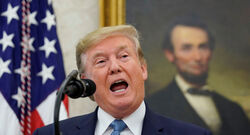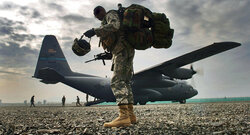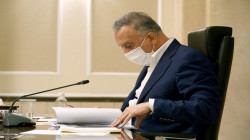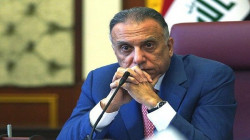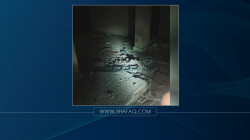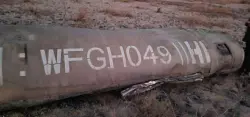Baghdad’s rockets are still being launched after the "three-years schedule".. What is Al-Kadhimi-Trump's next move?
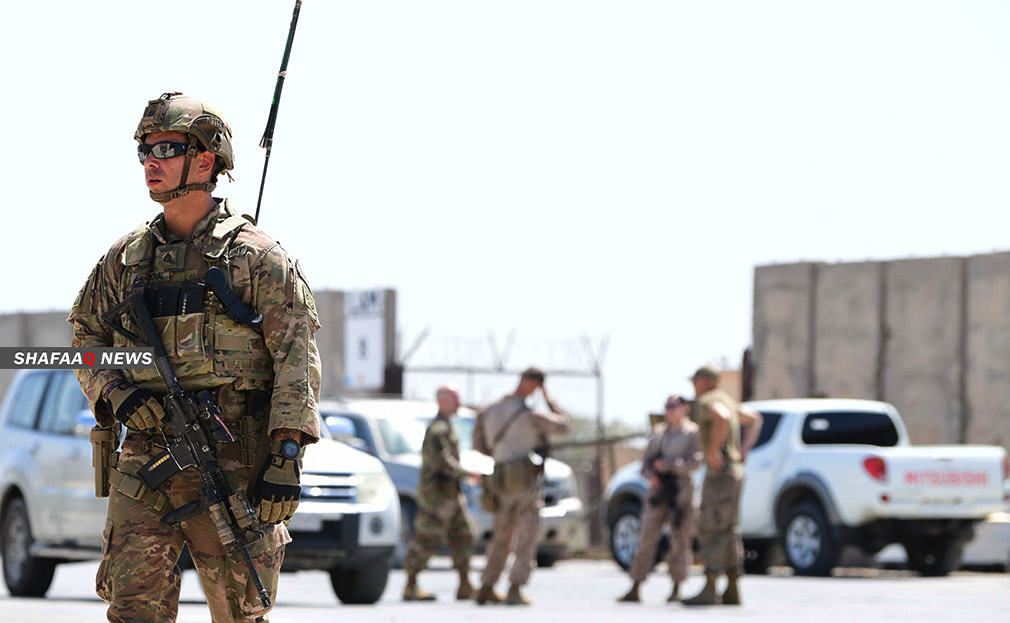
Shafaq News/ the period before the visit of the Iraqi Prime Minister, Mustafa Al-Kadhimi to Washington is not like the one after; specifically regarding the rocket attacks on US bases or the Green Zone in Baghdad, which now means that armed factions are not satisfied with the "three-year" declaration that the US President Donald Trump has referred to as a timetable for an exit from Iraq.
In this sense, these armed factions -or the political forces behind them- are also not satisfied with Al-Kadhimi's satisfaction with Trump’s announcement, and want to accelerate the exit of the US forces from Iraq to a shorter timetable.
Weekly, several attacks targeting the Green Zone or bases where US soldiers or the Global Coalition forces are stationed are recorded, and there have been bomb attacks targeting logistics convoys.
"The armed factions, who carry out rocket attacks, want to send a message that they are uncontrolled by the Iraqi state and that Al-Kadhimi is incapable of fulfilling his pledges", Atheel Al-Nujaifi, a leader of the Salvation and development front, told Shafaq News agency, "These factions cannot do more. they are spreading chaos inside Iraq by escalating rocket attacks in the Iraqi capital and other cities".
He also clarified, "Al-Kadhimi will not accept to give these loose weapons a greater role in Iraq and we expect the government to begin to escalate against these factions in the coming period".
Only a few days ago, the "Atlantic Council" published a report by Seth Frantzman addressing the unwritten rules that shaped the current Iraqi scene in regards to the attacks on US forces in Iraq and Washington's "Contested Deterrence" policy. The Iranians -like the Americans themselves- are circling Balancing act without escalating the matters to the brink of serious confrontation. However, this ultimately led to the United States withdrawal.
"After the decision of the Iraqi Parliament to expel the American forces, some of the so-called resistance parties have started to consider the US presence illegal and found a justification for themselves to target them", a leader in the Victory Alliance, Aqeel Al-Radini, told Shafaq News agency, "The rocket strikes aim to exert pressure on the Iraqi government to implement the parliament's decision and US forces to accelerate their withdrawal from Iraq".
"Some political parties have refused the United States’ three years schedule to withdraw. Therefore, the attacks are to embarrass Al-Kadhimi’s government, pressure it, and show that the government has no control over the loose weapons and some political figures", Al-Radini added.
The Atlantic Council said in its report, “While the rocket attacks began to increase in May and June 2019, coinciding with US-Iran tensions in the region, they surged in the fall of 2019…Looking back over a year of increasing attacks on US forces, the deterrence effort by Washington has only worked to a certain extent. Between March 11 and August 18, the volume of these attacks increased, with at least four attacks on convoys and up to twenty-eight attacks reported on bases housing US forces".
These attacks continued during Al-Kadhimi’s visit to Washington to meet Trump and other US officials, where the future of the US-Iraqi military cooperation was on the agenda.
"The escalation of the rocket attacks in the capital, Baghdad, is a message that there is hostility, rivalry and dissatisfaction with the US presence in Iraq…These operations are to make the United States always concerned for both its military bases and its diplomatic presence", Said Fadhil Abu Ragheef, Iraqi security affairs’ expert told Shafaq News agency, and added, "There is a disagreement between the parties that make up the majority of the Iraqi parliament with the government of Mustafa Al-Kadhimi. At the same time, those carrying out rocket attacks were not adopted by Al-Fateh alliance, Alliance Towards Reforms or any other bloc".
Abu Ragheef continued, "The groups carrying out rocket attacks in Baghdad are acting independently of the factions that are linked to Al-Fatah Alliance and others, which makes the situation more uncertain and brings the country to a stage of constant worrisome, which may lead to a future escalation”.
Despite the limited casualties caused by these attacks -rockets or explosive devices against convoys- they continue to target Baghdad’s airport more than once a week. This raises questions whether this will lead to a confrontation between the parties involved and Al-Kadhimi’s government, who wants to demonstrate his ability to control the security situation; whether in this case or other internal Iraqi security issues, especially as he returned from Washington satisfied with his agreement with Trump over the three-year schedule.
Al-Kadhimi will have to make a great effort to convince Iraqi political forces of the feasibility and importance of this understanding with the US administration and –therefore- the need to calm the situation on the eve of the elections.
The US ambassador to Iraq, Matthew Tueller, said in a press conference, attended by Shafaq News agency’s reporter in Baghdad that the continued rocket attacks of the US’s military and diplomatic presence in Baghdad would "prompt Washington to review many issues".
